Not only does emergency food aid help keep people alive and nourished in times of crisis, a favorite recipe can also give them a sense of normalcy during times of trauma and change.
Find out how innovative projects through the World Food Programme are empowering people like Saeeda — who was displaced from Mosul, Iraq, two years ago — to cook a favorite recipe from home.
And try making her dolma recipe yourself!
Saeeda Nouri, 45, is one of tens of thousands of Iraq’s Christians who fled religious violence in Mosul, Iraq, in June 2014. She now lives with her husband and youngest son in Ashti Camp for displaced Iraqi families in Erbil, in the Kurdish region of northern Iraq.
The World Food Programme’s Marwa Awad visits Saeeda to hear her story and learn about one of Iraq’s most famous dishes.
When it became apparent that her neighborhood would fall into the hands of militants, Saeeda and her family left everything behind to seek safety.
Saeeda is surprisingly cheerful as she tells the story of the family’s harrowing journey through the night to escape Mosul. Not knowing whether she would see her husband and son again as they were in separate cars, she spent the entire journey praying they would all make it. Her optimism for the future keeps her going, despite the fact she may have no home to return to.
Saeeda has turned the caravan into a replica of their home back in Mosul. Plastered on one of the walls is a large poster of the Virgin Mary, baby Jesus, and a white dove flying nearby. Under one of the caravan’s windows stands a bookcase with the few books Yaqoub managed to rescue from their home before it was destroyed.
In the back of the caravan is a kitchen, full of spices and kitchenware neatly organized to make space for a small oven, which the enterprising mother uses to bake bread. She recently bought a small silver fridge to remind her of home.
“I had a large silver fridge in my house. It was brand new and I barely had time to use it before we fled. I bought this small one. … It reminds me of home,” she says.
Always looking to help others, Saeeda, whose name means happy in Arabic, shares her little fridge with the neighbors, who use it to store leftover food.
This recipe for dolma is one of Saaeda’s favorite recipes from home.
Ingredients: What you’ll need
- 1 minced bulb of garlic
- ½ kg (1.1 lbs) onions (hollow out the inside)
- 3 green peppers (hollow out the inside)
- ¼ kg (0.55 lbs) zucchini (hollow out the inside)
- ¼ eggplant (hollow out the inside)
- ¼ kg (0.55 lbs) vine leaves
- 1 can tomato paste
- 2 cups cooked rice
- ½ kg (1.1 lbs) meat cubes
- 3 teaspoons allspice
- 2 stock cubes
- 1 cup Sumac juice (Sumac mixed with a cup of water)
Preparation time: 1 hour
Cooking time: 45 minutes
Instructions: What you’ll do
1. Mix the allspice with rice, minced garlic, tomato paste, meat cubes, and stock cubes in a bowl.
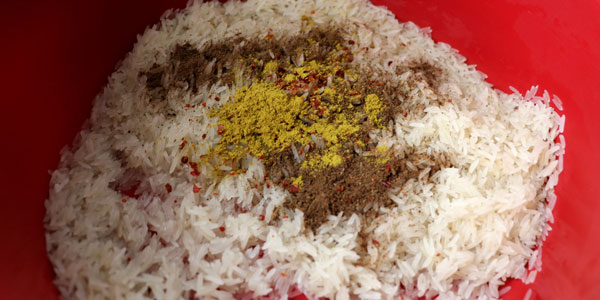
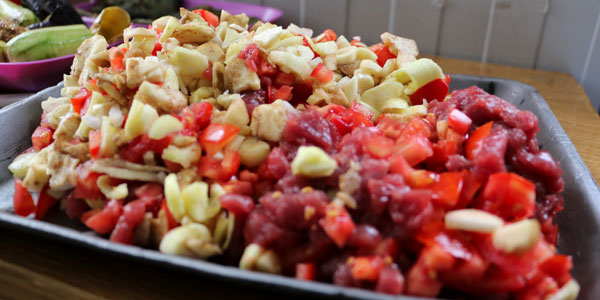
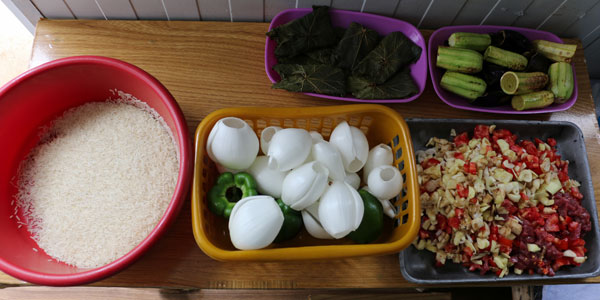
2. Stuff the hollowed-out onions, zucchini, green peppers, and eggplants with the stuffing mix.
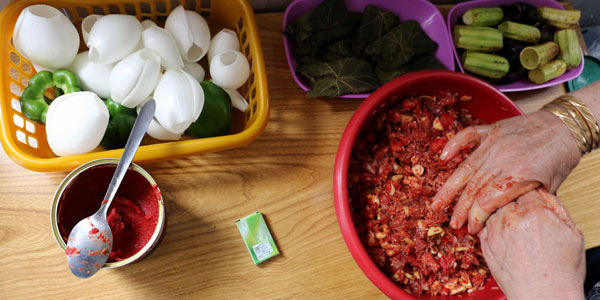
3. Place each stuffed piece neatly side by side in a large pot.
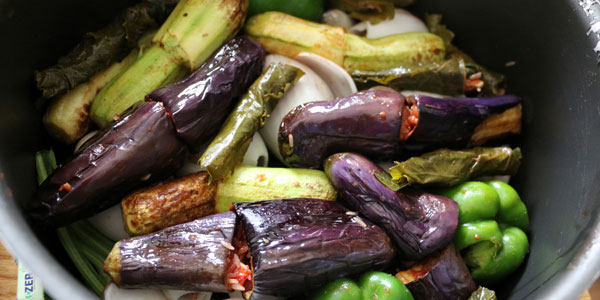
4. Take a small bundle of the stuffing on each grape leaf, fold in the sides, and roll up tightly to form finger-like rolls. Then layer each one on top of the stuffed vegetables in the pot.
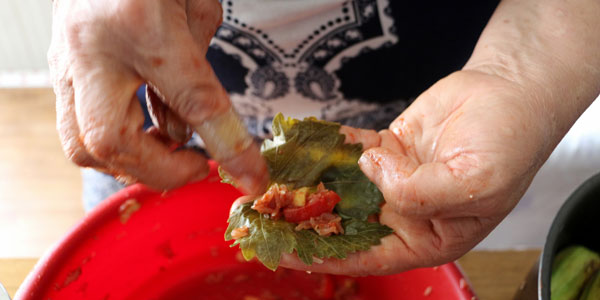
5. Pour one cup of Sumac juice onto the stuffed vegetables, then cover the pot.
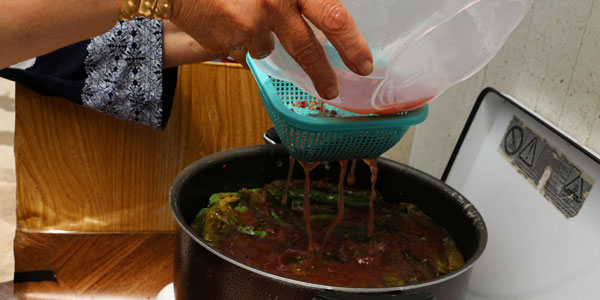
6. Place the pot over high heat and bring to a boil, then leave to simmer on low heat for 45 minutes or until vegetables are tender.
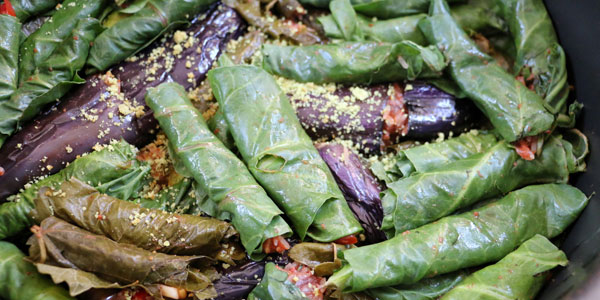
7. Once cooked, take the cover off the pot and let it cool for 10 minutes.
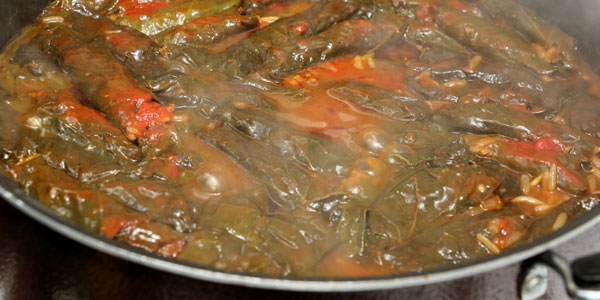
8. Remove the stuffed vegetables, or dolma, from the pot and transfer to a large platter.
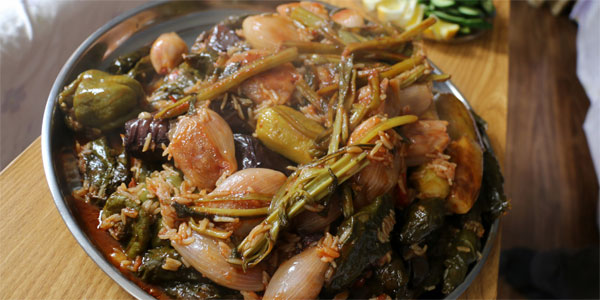
9. Serve with a yogurt drink.
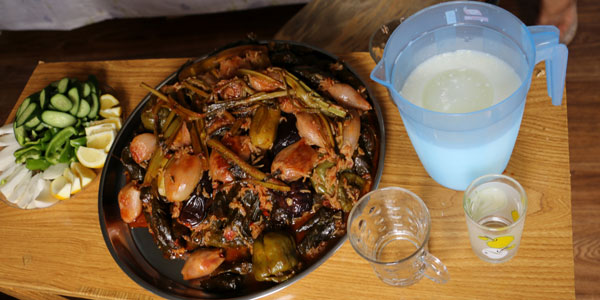
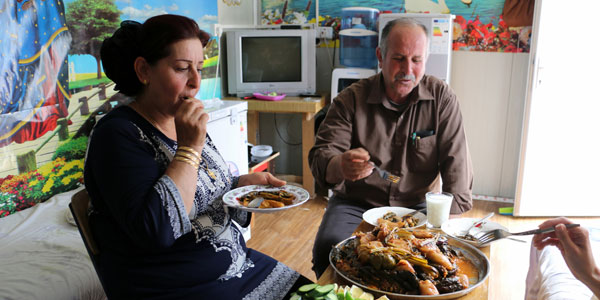
While delivering hundreds of thousands of tons of food each year to displaced Iraqis, the World Food Programme is increasingly switching its assistance to food vouchers, giving hungry people the power to choose their own food.
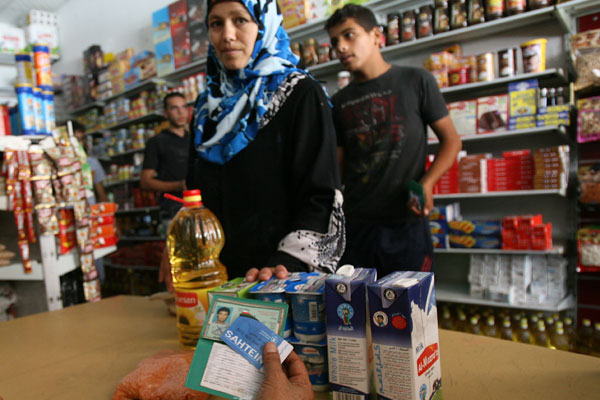
The WFP uses innovative ways to deliver food assistance, such as scratch cards or e-vouchers sent to mobile phones by text message. Launched in 2012, the e-food card initiative enables Syrian refugees to cook their own meals using fresh ingredients they can buy in the local markets. Read more about WFP’s E-Food card program (PDF, 1.48 MB).
In September, World Vision provided World Food Programme food aid — including food, vouchers, and cash — to more than 230,000 people in the Kurdish region of Iraq.
World Vision has been the World Food Programme’s largest partner on the ground for more than a decade, distributing more WFP food aid than any other charity. Together, we’re currently providing emergency food in 23 countries, including Iraq.
This recipe blog was first published by the World Food Programme and is reproduced courtesy of WFP. See the original story on their website.
Marwa Awad is a Communications officer for WFP in Iraq. She was formerly a Reuters reporter in Egypt.
Thanks to grants, your gift to feed the hungry will multiply four times in impact! Give to help stop hunger today.
As the battle for Mosul continues and more families are displaced from their homes, join us in providing emergency relief, including food. Support our refugee response here.
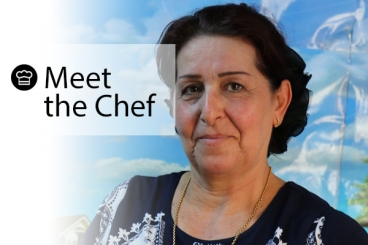
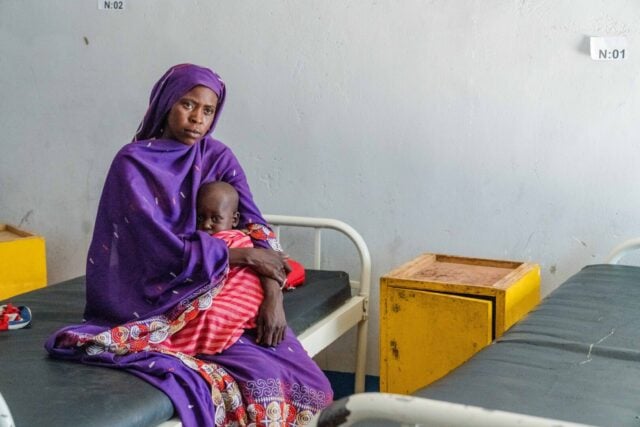


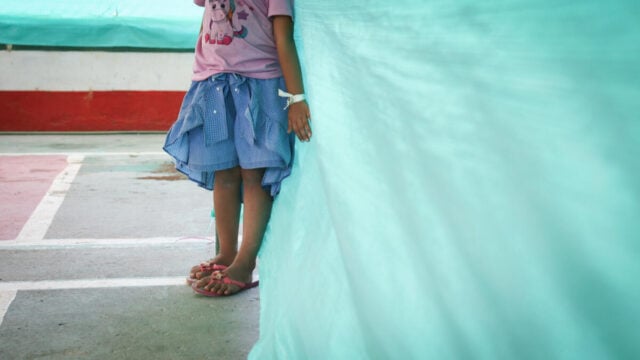
Comments